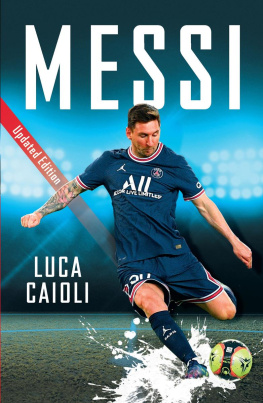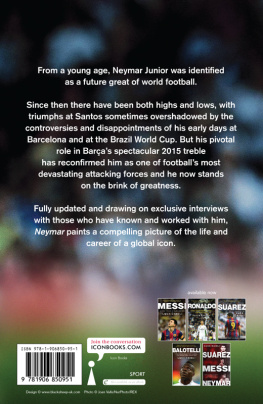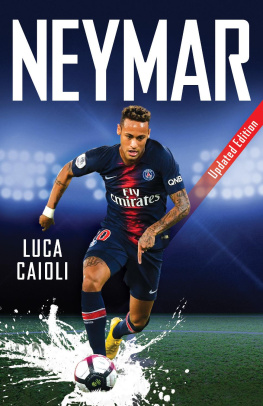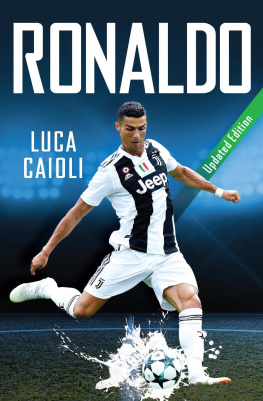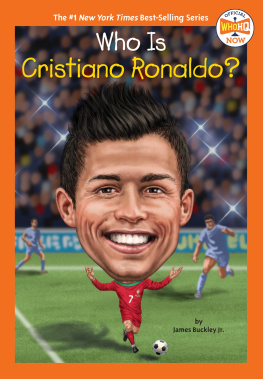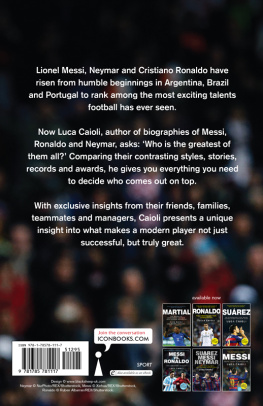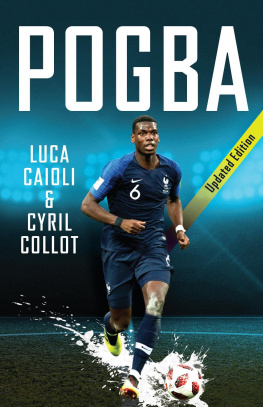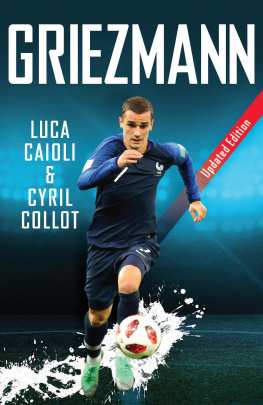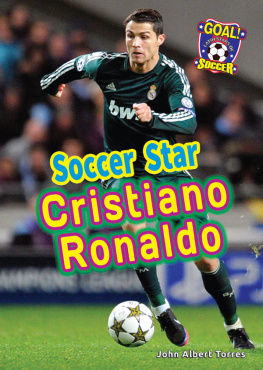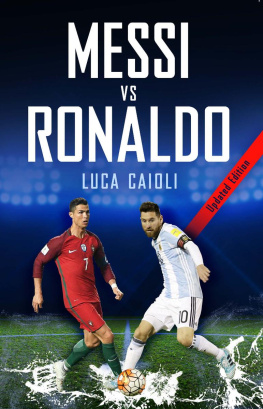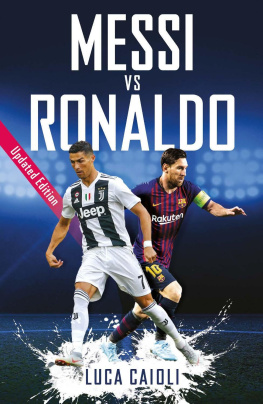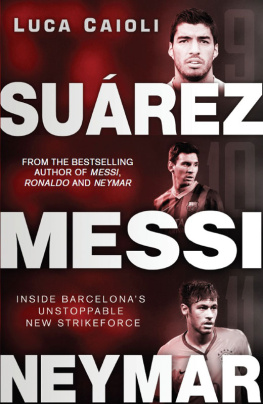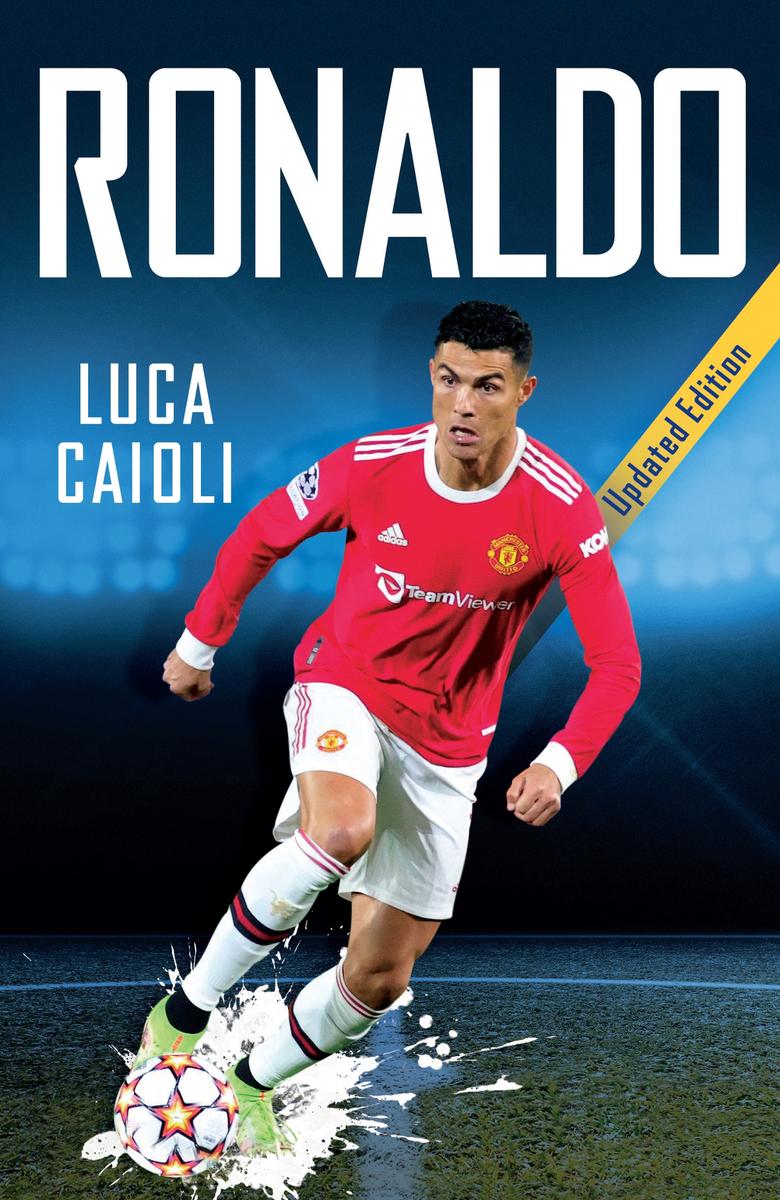On the one hand I had a happy childhood; on the other hand it was unusual because I left my family and moved to Lisbon at the age of twelve.
The three-bedroom concrete council house where Cristiano Ronaldo was born no longer exists. In 2007, the house at 27A Quinta do Falco, in the Santo Antnio neighbourhood of Funchal, capital of Madeira, was demolished to avoid problems with squatters.
The Aveiro family had long since moved on by this point. Cristianos mother Dolores now lives in a big white house overlooking the Atlantic in So Gonalo, at the other end of Funchal a beautiful home bought for her by her son, near the homes of his brother Hugo and sister Katia.
The once impoverished Quinta do Falco, with its cluster of council blocks on the mountain slope, has undergone a transformation in recent years thanks to investment from the European Union. New housing complexes have sprung up and the area has become acceptable to the Portuguese middle classes, many of whom have been horrified by the house prices on the coast.
At the end of a narrow little road where the footballers house used to stand, there is now an empty patch of overgrown scrubland, a five-a-side football pitch, and a bar. But its not unusual for fans to find their way down here, and for a few euros the cabbies take them on a tour his birthplace, where he grew up, his school, where he first played football in Portugals collective imagination he has succeeded in eclipsing such illustrious visitors to Madeira as Winston Churchill, Empress Elizabeth Sissi of Austria, Charles I of Austria, George Bernard Shaw, the poet Rilke, Christopher Columbus and Napoleon.
Madeira is an Atlantic archipelago some 860 kilometres from Lisbon, comprising two inhabited islands Madeira and Porto Santo and three minor, uninhabited islands. Hailed by the tourist guides as the garden of the Atlantic, Madeira island sits on a volcanic rock 57 kilometres long by 22 wide, a mountain range which rises up from beneath the sea to a summit of 1,862 metres at Pico Ruivo, its highest peak. The capital, Funchal, has a population of 110,000.
It was here that Cristiano was born, at 10.20am on Tuesday 5 February in the Cruz de Carvalho Hospital. He was 52 centimetres long at birth and weighed nearly nine pounds. A fourth child for Maria Dolores dos Santos and Jos Dinis Aveiro, younger brother to Hugo, Elma and Katia. It was an unplanned pregnancy, nine years after the birth of Katia, and now there was the issue of what to name him.
My sister, who was working in an orphanage at the time, said that if it was a boy we could name him Cristiano, recalls Dolores. I thought it was a good choice. And my husband and I both liked the name Ronaldo, after Ronald Reagan. My sister chose Cristiano and we chose Ronaldo.
Cristiano Ronaldo dos Santos Aveiro is duly baptised in the Santo Antnio church a day which coincidentally is marked by football. In his spare time, Jos Dinis helps out as a kit man for amateur football club CF Andorinho in Santo Antnio. He asks team captain Ferno Barros Sousa to take on the role of godfather to his new baby. The ceremony is booked for 6.00pm, but first theres a match at 4.00pm Andorinha are playing Ribeiras Bravas.
Reverend Antnio Rodrguez Rebola is getting nervous. He has already baptised the other children and there is still no sign of either father or godfather. Dolores and the godmother-to-be are following him around the church, baby in tow, trying to keep the priest calm. Eventually Ferno and Dinis arrive, half an hour late, and the ceremony can finally get underway.
The first photos in the family album show baby Cristiano, big eyes staring straight at the camera, dressed in a little blue and white outfit and white booties, with gold bracelets on both wrists, a gold ring, and a long chain with a crucifix around his neck. As he gets older, the photos show his hair forming into a little tuft of curls and his smile becomes gappy after losing his front teeth.
Dinis is the town hall gardener, while Dolores works hard as a cook so that she can put food on the table for her own children as well. Like thousands of Portuguese citizens, Dolores had emigrated to France at the age of twenty, where she spent three months cleaning houses. Her husband was going to join her, but when he wasnt able to she returned to Madeira. They already had two children.
Life isnt easy for the Aveiro family its difficult for anyone who lives far away from the luxury hotel industry which has colonised the coast. Its a small home for a family of six and whenever theres a storm the house leaks in dozens of places. Dolores fetches bricks and mortar from the town hall to try to keep the problem under control.
But today, Cristiano remembers that time as a happy childhood. At two or three years old, playing in the yard or on Lombinho Street, he began to discover his best friend the football.
One Christmas I gave him a remote controlled car, thinking that would keep him busy, recalls his godfather Ferno Sousa, but he preferred to play with a football. He slept with his ball, it never left his side. It was always under his arm wherever he went, it went with him.
Cristiano goes to nursery at the Externato de So Joo da Ribeira, a school run by Franciscan nuns. At six, he joins the local primary school. For secondary school he attends Gonalves Zarco, better known as the Barreiros school because of its proximity to the Barreiros stadium, where renowned Portuguese team CS Martimo play. Cristiano is not the studious type. He doesnt fare too badly but hes no bookworm either he is happy just to scrape a pass.
One of his class teachers, Maria dos Santos, remembers her former pupil as well behaved, fun and a good friend to his classmates. When asked about his favourite pastime, she says: From the day he walked through the door, football was his favourite sport. He took part in other activities, learnt songs and did his work, but he liked to have time for himself, time for football. If there wasnt a real ball around and often there wasnt he would make one out of socks. He would always find a way of playing football in the playground. I dont know how he managed it.
It was football in the playground and football in the street. When he got home from school, I used to tell him to go to his room and do his homework, says Dolores. He always told me he didnt have any. So I would go and start the cooking and he would chance his luck. He would climb out the window, grab a yoghurt or some fruit, and run away with the ball under his arm. Hed be out playing until 9.30 at night.
As if that wasnt enough, he began to skip classes to go out and play. His teachers told me I had to punish him, but I never did. He had to practise as much as possible to become a football star. As her son would later acknowledge: I was always playing football with my friends, thats what I loved doing, that was how I spent my time.
He plays in the street because there is no football pitch in the neighbourhood. One particular street, Quinta do Falco, proves to be a challenge when buses, cars and motorbikes want to get through. They have to remove the stones marking out the goalposts each time and wait for the traffic to pass before resuming the game. The games they play are intense battles between households, between gangs of friends. They are games that never end. The only hiccup is when the ball lands in one of the neighbours gardens and if its old Mr Agostinhos garden he always threatens to puncture the ball and tell Dolores and the other mothers to keep their children in check.
Theres a well where Cristiano spends hours on end kicking the ball against the wall alone. The well and the street are his first training grounds. Its here, between the pavement, the asphalt and the cars, playing against kids young and old, that Ronaldo learns the tricks and techniques which will make him great and become his signature style. He used to spend all day in the street, doing authentic tricks with the ball. It was as if it was attached to his foot, recalls Adelino Andrade, who lived near the Aveiro family.


